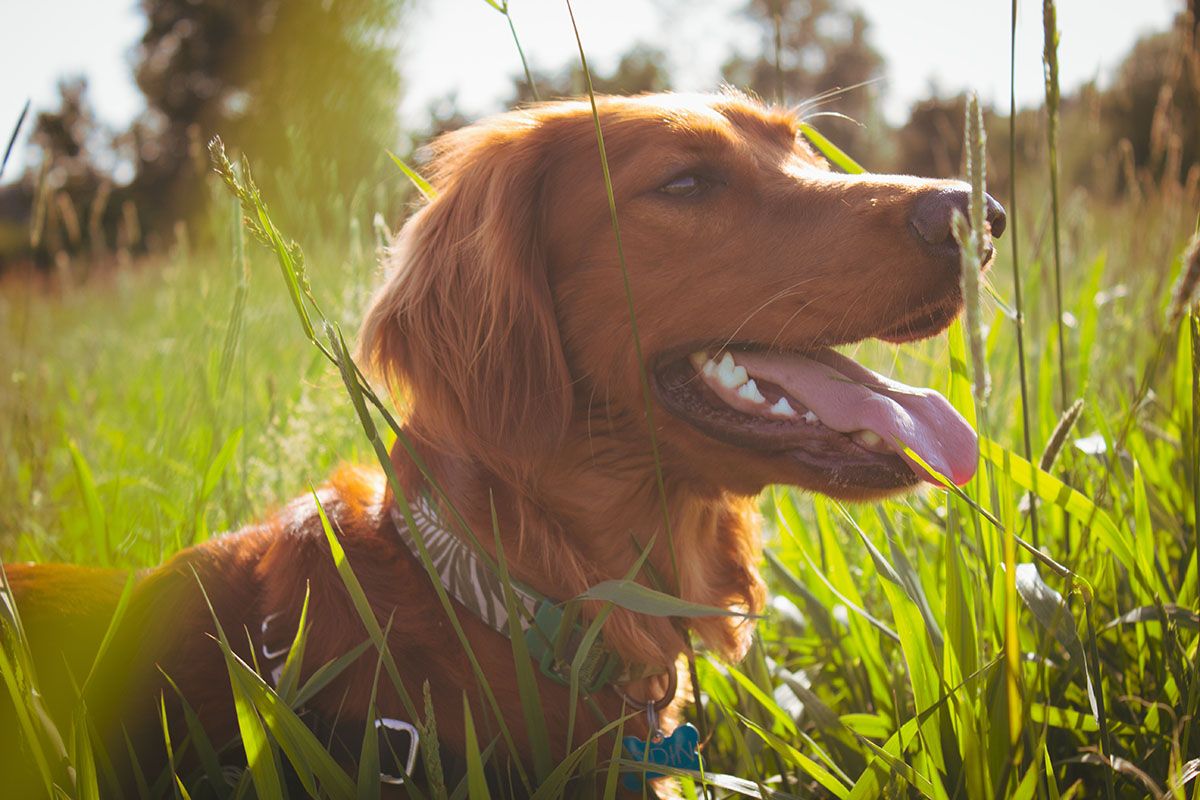Written by Dr. Jen Richardson (formerly Sinclair), BVetMed PgC(FelP) RCVS Advanced Practitioner in Small Animal Medicine, Veterinary Surgeon
Reviewed by Dr Jill McMaster BVM&S MBA MRCVS, Veterinary Surgeon and in-house expert at BorrowMyDoggy on 5 Jun 2023
Jen Sinclair, My Family Pet Vet and Clinical Director at London Road Vets in Norfolk, shares her expertise
“We see lots of adder-bitten dogs in my area and, while there’s a good chance the dog may be in shock, it’s important to bear in mind that the majority of dogs will not sustain serious injuries or complications from bites. The best thing is to stay in the know, to know what to do – and what not to do – in the event of your dog being bitten.

Things to know about adders
Firstly, let’s go through the things dog owners might need to know about adders:
- They’re the only poisonous snakes native to the UK
- Since 1981, they’ve been protected by the UK Wildlife and Countryside Act
- They like their own company and can often be found sunbathing
- They usually live in sand dunes, hillsides and rocky/grassland areas
- They are recognisable from the zigzag pattern along their backs, and v-shaped marking on their heads
- They bask in peak sunlight, so are most often seen between April and August
- They’re carnivores, usually dining on small lizards, mammals or birds (never dogs, so don’t worry!)
- Their bites are very rarely fatal

Although poisonous, adders don’t usually pose much of a threat. They keep to themselves and will only bite if they feel attacked or that their territory is being invaded. During cases where dogs do sustain adder bites, this is likely the cause. Generally, we find that the more curious dogs, especially those roaming off the lead, will be more prone to bites.
Clinical signs of adder bites
The tell-tale sign of your dog having been bitten will be a loud yelp. There may also be a kerfuffle as the animals scramble away from one another or you may even see the incident yourself, in which case you’ll know to take them to your local vet for a check-up as soon as possible. If you don’t see the incident, symptoms of adder bites in dogs can include:
- Two small puncture wounds
- Major swelling that may be dark in colour
- Limping, yelping or other evidence of your dog being in pain
- Blood/bruises
- Inflamed skin – from where the venom has spread
- Fast heartbeat or excessive panting
- Drooling
- Vomiting
- Lethargy or general weakness
- Pale gums
If you notice any of these symptoms, be aware that many of them can pertain to other conditions, so it’s always worth having your dog checked by a vet as soon as you can.
So, what do you do if your dog is bitten?
Well, the first thing to bear in mind at all times is… don’t panic! You may be frightened and confused but if your pet sees you like this, they’ll only feel worse themselves.
Instead, stay very calm and do your best to make sure your dog stays still. If they’re small enough for you to carry them, do it! This can really help to minimise the spread of the adder’s venom around the body. If your dog is too big to carry, try to keep them as calm and quiet as possible, and if you can, apply cool compresses or water to swollen areas.
Take your pet to the nearest vet practice as soon as you can, they will treat your dog with the right medication based on how serious their bite is and how shocked/distressed they are – it could be painkillers, antihistamines, anti-venom, shock treatment or a combination of these. If possible, call ahead to let the practice know you are coming in order to prepare for your arrival.

A take-home message
Remember that 96% of bitten dogs make a full recovery in 5 days or less. Remember also that adders are shy and comparatively rare creatures to come across. Enjoy the sunshine; enjoy your dog walks just as you would during other times of the year. Stay alert at all times, keep one eye open for cases of adder bites in your area, but certainly don’t let the threat of an adder bite spoil you or your dog’s spring adventures.”
First Aid Guides
What to do if your dog is bleeding?
What to do when your dog has difficulty breathing?
What to do when your dog has collapsed?





